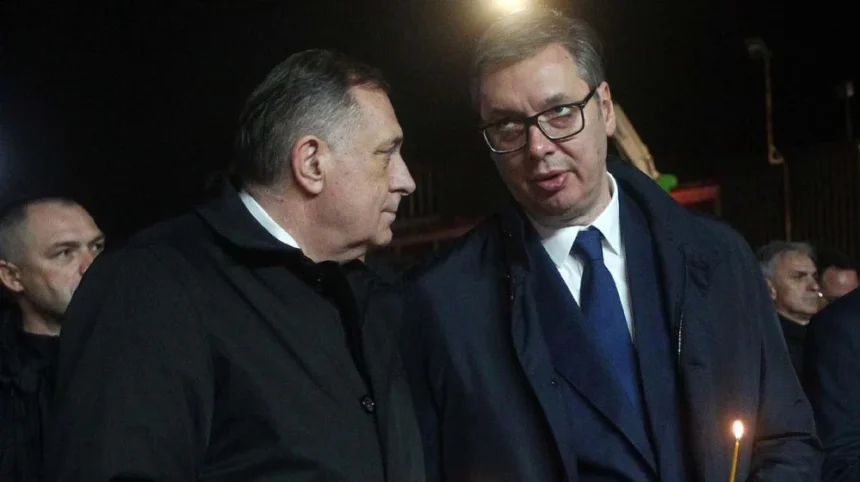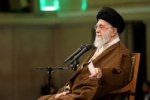The U.S. Helsinki Commission has directly called out Serbia and Russia for their support of Milorad Dodik, the Bosnian Serb leader, in his ongoing efforts to undermine the constitutional order of Bosnia and Herzegovina. In a rare and pointed criticism, the Commission warned that these actions are detrimental to Bosnia’s stability and its prospects of joining the European Union.
In response, the Serbian Embassy in Washington, D.C. issued a statement vehemently rejecting these accusations. The Embassy stressed that Serbia is committed to the Dayton Agreement, the territorial integrity of Bosnia, and the principles of cooperation in the region.
However, these assertions seem to clash with the actions of Serbian President Aleksandar Vučić, who has consistently backed Dodik, even during moments when Dodik’s actions directly challenged Bosnia’s state institutions. Vučić’s vocal support of Dodik raises questions about Serbia’s true stance on Bosnia’s sovereignty.
The Serbian Embassy emphasized that Serbia supports the Dayton Agreement, but also pointed out the importance of protecting the constitutional rights of the entities within Bosnia, a reference that aligns with Dodik’s separatist rhetoric. These remarks only add to growing concerns that Serbia is enabling actions that undermine Bosnia’s political unity.
The Helsinki Commission has called for the European Union to impose sanctions on Dodik and his associates, following the lead of the United States, and warned both Moscow and Belgrade to cease their efforts to destabilize the region.
Despite these calls, the Serbian Embassy refrains from acknowledging Serbia’s role in the crisis. Instead, it downplays the situation by suggesting that Dayton is being “misinterpreted” and advocates for a “balanced approach.” This diplomatic maneuver seeks to deflect attention from Serbia’s tacit support for Dodik.
This is highlighting the deeper concerns surrounding Serbia’s approach. While Serbia’s government claims to support peace and stability in the region, its tactical support for Dodik continues to exacerbate Bosnia’s political crisis, one of the most severe since the Bosnian War.







